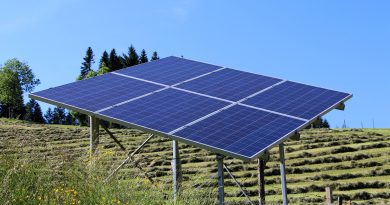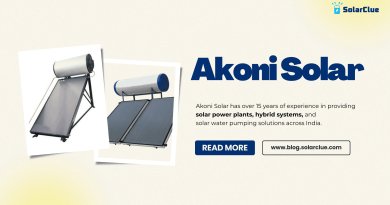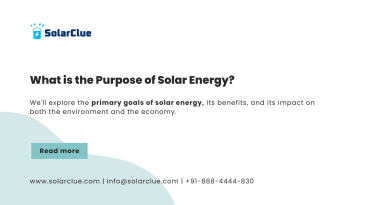do solar panels work in the rain
Solar panels are designed to harness the sun’s energy, but what happens when it rains? Rainy weather can impact solar panel performance, but the effects are often misunderstood. This comprehensive guide will explain how rain affects solar panel efficiency, how the design and materials of solar panels help mitigate these effects, and how to maintain your solar system in wet conditions.
Table of Contents
- 1 The Impact of Rain on Solar Panel Efficiency
- 1.1 Water Droplet Effects on Sunlight Absorption
- 1.2 Solar Panel Materials and Their Water Resistance
- 1.3 Cleaning and Maintaining Solar Panels in Rainy Conditions
- 1.4 The Role of Solar Panel Tilt and Orientation
- 1.5 Comparing Solar Panel Performance in Rainy vs. Sunny Weather
- 1.6 The Future of Solar Technology and Its Ability to Withstand Rain
- 1.7 Common Misconceptions About Solar Panels and Rain
- 1.8 The Benefits of Solar Panels in Rainy Climates
- 1.9 Solar Panel Performance in Different Weather Conditions
- 1.10 Conclusion
The Impact of Rain on Solar Panel Efficiency
Direct Impact:
- Reduced Sunlight: During rain, clouds obscure the sun, reducing the amount of sunlight that reaches the solar panels. This naturally lowers the amount of electricity generated.
- Water Droplets: Rainwater on the surface of solar panels can cause light scattering and refraction, which can further reduce the amount of sunlight absorbed by the solar cells.
Indirect Benefits:
- Cleaning Effect: Rain helps wash away dust, dirt, and debris from the surface of the panels, which can otherwise block sunlight and reduce efficiency. This cleaning effect can boost performance once the rain subsides.
Water Droplet Effects on Sunlight Absorption
Light Refraction:
- Scattering of Light: Water droplets on the surface of solar panels can scatter incoming light, causing some of it to miss the solar cells, reducing the overall energy absorption.
- Reduced Efficiency: This scattering effect can lead to a temporary reduction in efficiency, although the impact is generally minimal and varies depending on the intensity of the rain and the design of the panel.
Self-Cleaning Properties:
- Hydrophobic Coatings: Many solar panels are equipped with hydrophobic (water-repellent) coatings that minimize the effect of water droplets by encouraging them to roll off the surface quickly, reducing light scattering.
Solar Panel Materials and Their Water Resistance
Durable Construction:
- Tempered Glass: The top layer of most solar panels is made from tempered glass, which is highly durable and resistant to water. This glass protects the underlying solar cells from moisture and mechanical damage.
- Water-Resistant Sealants: The edges of solar panels are sealed with water-resistant materials to prevent water ingress, which could damage the electrical components.
Quality Standards:
- IP Ratings: Solar panels are often rated with an IP (Ingress Protection) code, which indicates their resistance to dust and water. Most solar panels are rated IP65 or higher, ensuring protection against water jets and rain.
Cleaning and Maintaining Solar Panels in Rainy Conditions
Rain as a Natural Cleaner:
- Debris Removal: Rain can help remove accumulated dust and debris, which is beneficial for maintaining optimal performance.
- Post-Rain Cleaning: In some cases, light cleaning after the rain may be necessary to remove any remaining dirt or water spots that could reduce efficiency.
Maintenance Tips:
- Regular Inspections: After heavy rain, inspect your panels for any signs of damage, such as cracks or loose connections.
- Avoid Harsh Cleaners: Use mild soap and water with a soft cloth for cleaning, and avoid abrasive materials that could scratch the glass surface.
The Role of Solar Panel Tilt and Orientation
Optimizing Tilt Angle:
- Self-Cleaning Angle: Panels installed at an optimal tilt angle not only maximize sunlight exposure but also help water run off quickly, minimizing the impact of rain and dirt accumulation.
- Rainwater Runoff: A steeper tilt angle is more effective at promoting rainwater runoff, which can help keep panels clean.
Orientation Considerations:
- Facing the Sun: Panels should be oriented to face the sun as directly as possible, considering seasonal changes in the sun’s position, to maximize energy production even during rainy periods.
Comparing Solar Panel Performance in Rainy vs. Sunny Weather
Sunny Conditions:
- Peak Efficiency: Solar panels perform at their best under direct, unobstructed sunlight, generating maximum electricity.
Rainy Conditions:
- Reduced Output: On rainy days, solar panel output can drop by 20% to 50%, depending on the severity of the weather and the quality of the solar panels.
- Compensation: The cleaning effect of rain and the use of battery storage can help mitigate the impact of reduced output during rainy periods.
The Future of Solar Technology and Its Ability to Withstand Rain
Advancements in Coatings:
- Self-Cleaning Coatings: Future solar panels may incorporate advanced self-cleaning coatings that enhance water resistance and reduce the need for manual cleaning.
Enhanced Efficiency:
- Low-Light Performance: Research and development are focused on improving solar cell efficiency in low-light conditions, which will help maintain higher energy production even on rainy days.
Durability Improvements:
- Stronger Materials: Ongoing innovations in materials science could lead to even more durable solar panels that can withstand extreme weather conditions, including heavy rain, hail, and storms.
Common Misconceptions About Solar Panels and Rain
Myth: Solar Panels Don’t Work in the Rain:
- Reality: Solar panels continue to produce electricity during rain, albeit at a reduced rate. The rain can also help clean the panels, potentially boosting their performance afterward.
Myth: Rain Will Damage Solar Panels:
- Reality: High-quality solar panels are designed to withstand rain and other environmental factors. They are built with durable materials and water-resistant seals to protect the internal components.
The Benefits of Solar Panels in Rainy Climates
Consistent Energy Production:
- Year-Round Performance: Solar panels can still generate significant amounts of electricity in rainy climates, especially when combined with battery storage to capture excess energy produced during sunny periods.
Environmental Impact:
- Renewable Energy: Even in areas with frequent rain, solar panels contribute to reducing reliance on fossil fuels and lowering carbon emissions.
Financial Savings:
- Long-Term Savings: Over time, the savings on electricity bills can offset the initial investment, making solar panels a cost-effective option even in rainy regions.
Solar Panel Performance in Different Weather Conditions
| Weather Condition | Expected Solar Panel Output | Description |
|---|---|---|
| Sunny, Clear Skies | 90% – 100% | Maximum efficiency, full sunlight exposure |
| Partly Cloudy | 60% – 80% | Reduced sunlight, but still significant output |
| Overcast | 40% – 60% | Lower light levels, reduced efficiency |
| Light Rain | 50% – 70% | Reduced sunlight with the benefit of panel cleaning |
| Heavy Rain | 20% – 50% | Significant reduction in sunlight, potential refraction issues |
Conclusion
Rainy weather does affect solar panel performance, but the impact is often less severe than many people assume. High-quality solar panels are designed to withstand rain and can continue generating electricity even on cloudy, rainy days. By understanding how rain interacts with solar panels and taking proper maintenance steps, you can ensure that your solar system remains efficient and effective throughout the year, regardless of the weather. As solar technology continues to advance, the ability of panels to perform well in various conditions will only improve, making solar energy a viable option in all climates.
FAQ Section
1. Do solar panels work when it rains?
Yes, solar panels continue to work during rain, but their efficiency is reduced due to lower sunlight levels. However, rain can help clean the panels, improving their performance after the rain stops.
2. Can rain damage my solar panels?
No, high-quality solar panels are designed to withstand rain and other environmental factors. They are built with durable materials and sealed to prevent water ingress.
3. How does rain affect solar panel performance?
Rain reduces the amount of sunlight reaching the panels, lowering their output. Water droplets can also cause light scattering, further reducing efficiency. However, the rain’s cleaning effect can boost performance in the long run.
4. Should I clean my solar panels after it rains?
It depends. If the rain leaves behind dirt or water spots, a light cleaning may be necessary. Otherwise, rain often helps keep panels clean by washing away dust and debris.
5. Are there solar panels designed specifically for rainy climates?
While all quality solar panels are designed to withstand rain, advancements in materials and coatings are improving the efficiency of panels in low-light and rainy conditions.



